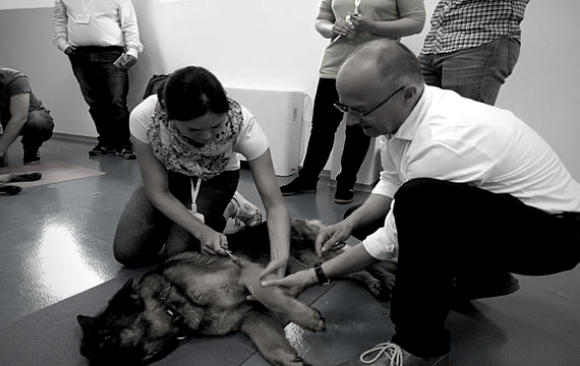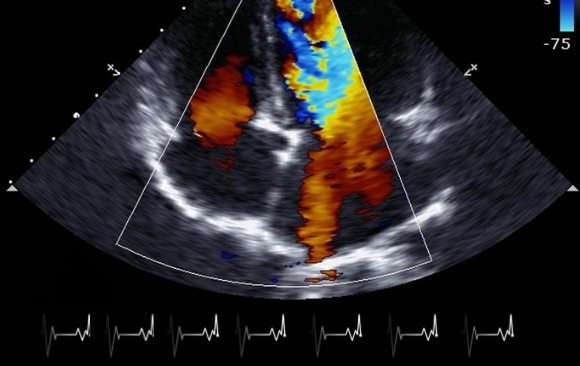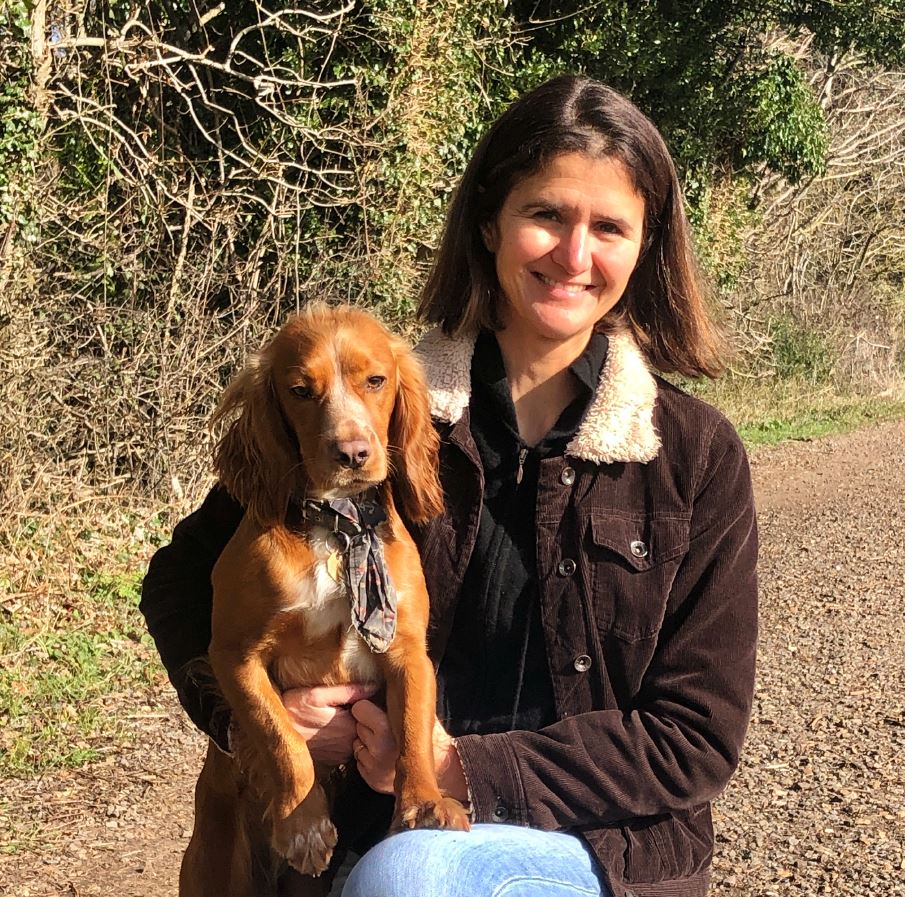
by tatkonasajt | Mar 8, 2023
Dvodnevni kurs ultrazvučne dijagnostike koji za cilj ima savladavanje tehnike pregleda nadbubrežnih žlezda, pankreasa, pluća, štitaste žlezde, većih krvnih sudova i važnijih limfnih čvorova. Na kursu će se obraditi i teme brzog pregleda abdomena i grudnog koša (AFAST i TFAST) kao i ultrazvučno vođena punkcija.
Prvi dan
| Vreme |
Naslov |
Format |
| 09:00 – 09:30 |
Uvod |
Teorijski |
| 09:30 – 10:30 |
Tehnika pregleda abdominalnih organa |
Praktično |
| 10:30 – 11:00 |
Pauza za kafu |
|
| 11:00 – 12:00 |
Pankreas, krvni sudovi i važniji limfni čvorovi |
Teorijski |
| 12:00 – 13:30 |
Pankreas, krvni sudovi i važniji limfni čvorovi |
Praktično |
| 13:30 – 14:30 |
Pauza za ručak |
|
| 14:30 – 17:00 |
Pankreas, krvni sudovi i važniji limfni čvorovi |
Praktično |
Drugi dan
| Vreme |
Naslov |
Format |
| 09:00 – 09:30 |
Nadbubrežne žlezde |
Teorijski |
| 09:30 – 10:30 |
Nadbubrežne žlezde |
Praktično |
| 10:30 – 11:00 |
Pauza za kafu |
|
| 11:00 – 11:45 |
Štitasta žlezda, pluća, AFAST, TFAST |
Teorijski |
| 11:45 – 13:30 |
Štitasta žlezda, pluća, AFAST, TFAST |
Praktično |
| 13:30 – 14:30 |
Pauza za ručak |
|
| 14:30 – 16:00 |
Pregled kompletnog abdomena |
Praktično |
| 16:00 – 16:30 |
Ultrazvučno vođena punkcija |
Teorijski |
| 16:30 – 17:00 |
Ultrazvučno vođena punkcija |
Praktično |

by tatkonasajt | Mar 8, 2023
Dvodnevni kurs ultrazvučne dijagnostike abdominalnih organa koji za cilj ima upoznavanje polaznika sa mogućnostima ultrazvučne dijagnostike, savladavanje tehnike pregleda jetre, žučne kese, slezine, bubrega, mokraćne bešike, muškog i ženskog reproduktivnog trakta, digestivnog trakta, desnog režnja pankreasa kao i upoznavanje sa najčešćim ultrazvučno vidljivim patologijama.
Prvi dan
| Vreme |
Naslov |
Format |
| 09:00 – 10:00 |
Uvod i osnove |
Teorijski |
| 10:00 – 10:30 |
Upoznavanje sa aparatom |
Praktično |
| 10:30 – 11:00 |
Pauza za kafu |
|
| 11:00 – 11:45 |
Jetra, žučna kesa, slezina |
Teorijski |
| 11:45 – 13:30 |
Jetra, žučna kesa, slezina |
Praktično |
| 13:30 – 14:30 |
Pauza za ručak |
|
| 14:30 – 15:15 |
Bubrezi, mokraćna bešika |
Teorijski |
| 15:15 – 16:30 |
Bubrezi, mokraćna bešika |
Praktično |
| 16:30 – 17:00 |
Pitanja |
|
Drugi dan
| Vreme |
Naslov |
Format |
| 09:00 – 09:45 |
Želudac, creva, pankreas |
Teorijski |
| 09:45 – 10:30 |
Želudac, creva, pankreas |
Praktično |
| 10:30 – 11:00 |
Pauza za kafu |
|
| 11:00 – 11:30 |
Ženski i muški reproduktivni trakt |
Teorijski |
| 11:30 – 13:30 |
Ženski i muški reproduktivni trakt |
Praktično |
| 13:30 – 14:30 |
Pauza za ručak |
|
| 14:30 – 16:00 |
Praktičan rad |
Praktično |
| 16:00 – 16:30 |
Pisanje izveštaja |
Teorijski |
| 16:30 – 17:00 |
Pitanja |
|

by tatkonasajt | Feb 8, 2023
This is a two-day practical course in small animal surgery. The course is designed to cover all major aspects of head and neck, abdominal and reconstructive surgery. Some elements of theory will be given to put the surgery into context, but most of the time will be spent practicing techniques on cadavers. The course is suitable for all levels from beginners to advanced as there will be something to be gained by everyone. It is also designed to be flexible so people can practice at their own pace and concentrate on techniques that they would like to perfect. The tutors will be available to observe and have direct involvement in teaching the procedures.
The learning objectives of the course are:
- An understanding of when we perform the techniques and the potential complications we could encounter
- A review of the associated anatomy of each technique
- The surgical approach to the head and neck and abdominal cavity
- Focus on an emergency orientated approach to these areas such as tracheostomy and GDV surgery
- Understanding an approach to wound closure from simple to more complex
Jackie Demetriou will be one of the course tutors. She is a European Boarded Specialist in Small Animal Surgery, who has practiced specialist level soft tissue surgery for the past 20 years. She has worked in both academia (University of Edinburgh, University of Cambridge and University of Nottingham) and private referral practice. She has extensive experience teaching general practitioners the theory and practice of surgery and really enjoys seeing how surgeons gain confidence in managing cases and performing surgeries after these CPD events.
Day 1 – Head, Neck and Skin reconstruction
- Short introduction to weekend events
- Revision of instruments, handling, suture patterns
- Head and neck surgery
- Nostril wedge resection (BOAS)
- If possible – staphylectomy
- Approach to the neck
- Tracheotomy
- Tracheostomy tube placement
- Thyroidectomy
- Parathyroidectomy
- Sialadenectomy
- Skin reconstruction – afternoon
- Undermining
- V to Y advancement
- Relaxing incisions – single / multiple
- Advancement flap
- Bipedicle advancement flap
- Transposition flap
- Caudal superficial epigastric flap
Day 2 – Abdominal surgery
Overview of an abdominal exploration and GI surgery
- Biopsy techniques – liver, GI, lymph node, kidney, pancreas
- Enterotomy
- Enterectomy
- Omentalisation and serosal patch
- Gastropexy – incisional, tube
- Cholecystectomy
- Cystotomy
- Nephrectomy

by tatkonasajt | Jan 17, 2023
HOW TO DESCRIBE WHAT YOU SEE AND KNOW IF IT IS NORMAL
The neurological examination is one of the most important and cost-effective tools in clinical neurology
During this course delegate will learn:
- To determine if the nervous system is affected in a disease process (to detect the presence of a neurological abnormality)
- To establish an accurate anatomical diagnosis, to localise the lesion (to determine its location)
The neurological examination is the most important step in identifying if a patient’s condition is neurological (versus medical or orthopedic) and where in the nervous system the pathology is located. Delegate will be explained how to establish a routine standard procedure for examining an animal. This will provide the experience and confidence necessary to make an accurate neuroanatomical diagnosis. The neurological examination should enable an anatomical diagnosis to be established and determine where the lesion is: Brain, Spinal cord or Peripheral nerve and muscle. It is important to consider if one lesion can explain all deficits, or if the disease is more diffuse or multifocal.
This course is aimed at the every clinician as well to those with more experience and interest in small animal neurology.
DAY 1
| Time |
Title |
| 09:00 – 09:15 |
Welcome and Introduction |
| 09:15 – 09:45 |
Multiple Choice Test |
| 09:45 – 11:00 |
Talk: Neurological Examination |
| 11:00 – 11:30 |
Coffee break |
| 11:30 – 12:00 |
Demonstration of Neurological examination |
| 12:00 – 13:15 |
Neurological examination performed by participants |
| 13:15 – 14:15 |
Lunch |
| 14:15 – 15:45 |
Talk: Neurolocalisation |
| 15:45 – 16:15 |
Coffee break |
| 16:15 – 17:45 |
Neurolocalisation with everybody together based on videos Part I (6 cases) |
DAY 2
| Time |
Title |
| 09:00 – 11:00 |
Neurolocalisation based on videos in groups part II (6 cases) |
| 11:00 – 11:30 |
Coffee break |
| 11:30 – 13:00 |
Cases from the first session of the day are presented by the participants to everybody and discussed together |
| 13:00 – 14:00 |
Lunch |
| 14:00 – 15:45 |
Neurolocalisations on real patients (if available) |
| 15:45 – 16:15 |
Coffee break |
| 16:15 – 17:30 |
Discussion of own cases (every participant has to bring one own case) |
| 17:30 – 18:00 |
MC-Test to allow the participants to judge the progress they have made during the seminar |

by tatkonasajt | Jan 2, 2023
This Echocardiography Course offers the opportunity to learn theoretical knowledge and develop the practical skills necessary for the use of transthoracic echocardiography in diagnostic investigation and disease treatment of cardiovascular disorders. During the course, participants will have the opportunity to develop their own echocardiographic skills and adapt the learning to their individual work experience and circumstances.
The Course includes a critical assessment of the role of echocardiography in clinical practice and a deepening of knowledge of echocardiographic instrumentation, Doppler physics, hemodynamics, anatomy and cardiovascular physiology and functional cardiac parameters. Course participants will also be able to perform hands-on exercises to refine the acquisition and interpretation of diagnostic images and learn the guidelines for a proper report of the echocardiographic examination.
ADVANCED ECHOCARDIOGRAPHY (DAY1)
| Time |
Title |
Format |
| 08:30 – 09:00 |
Registration and Welcoming |
|
| 09:00 – 10:30 |
Principle of Echo-Doppler examination |
Theoretical |
| 10:30 – 11:00 |
Coffee break |
|
| 11:00 – 12:30 |
Echo-Doppler acquisitions, setting and measurements (CFM, CW, PW, HPRF) |
Theoretical |
| 12:30 – 13:00 |
Discussion |
Interactive |
| 13:00 – 14:00 |
Lunch |
|
| 14:00 – 15:30 |
Colour and Spectral Doppler acquisitions |
Practical |
| 15:30 – 16:00 |
Coffee break |
|
| 16:00 – 17:30 |
Colour and Spectral Doppler acquisitions |
Practical |
| 17:30 – 18:00 |
Discussion |
Interactive |
ADVANCED ECHOCARDIOGRAPHY (DAY2)
| Time |
Title |
Format |
| 08:30 – 09:00 |
Registration and Welcoming |
|
| 09:00 – 10:30 |
Echocardiography of the common cardiac disorders in dogs |
Theoretical |
| 10:30 – 11:00 |
Coffee break |
|
| 11:00 – 12:30 |
Echocardiography of the common cardiac disorders in cats |
Theoretical |
| 12:30 – 13:00 |
Discussion |
Interactive |
| 13:00 – 14:00 |
Lunch |
|
| 14:00 – 15:30 |
Complete echocardiographic examination |
Practical |
| 15:30 – 16:00 |
Coffee break |
|
| 16:00 – 17:30 |
Complete echocardiographic examination |
Practical |
| 17:30 – 18:00 |
Discussion |
Interactive |





